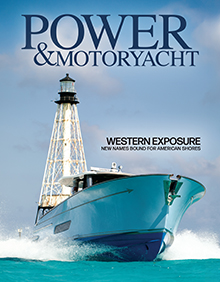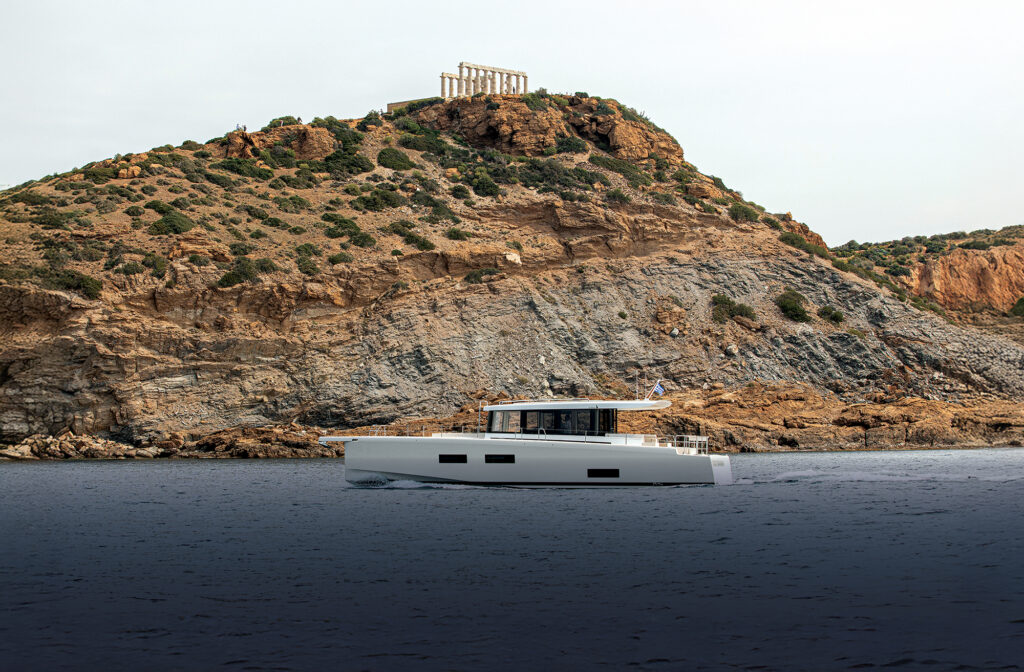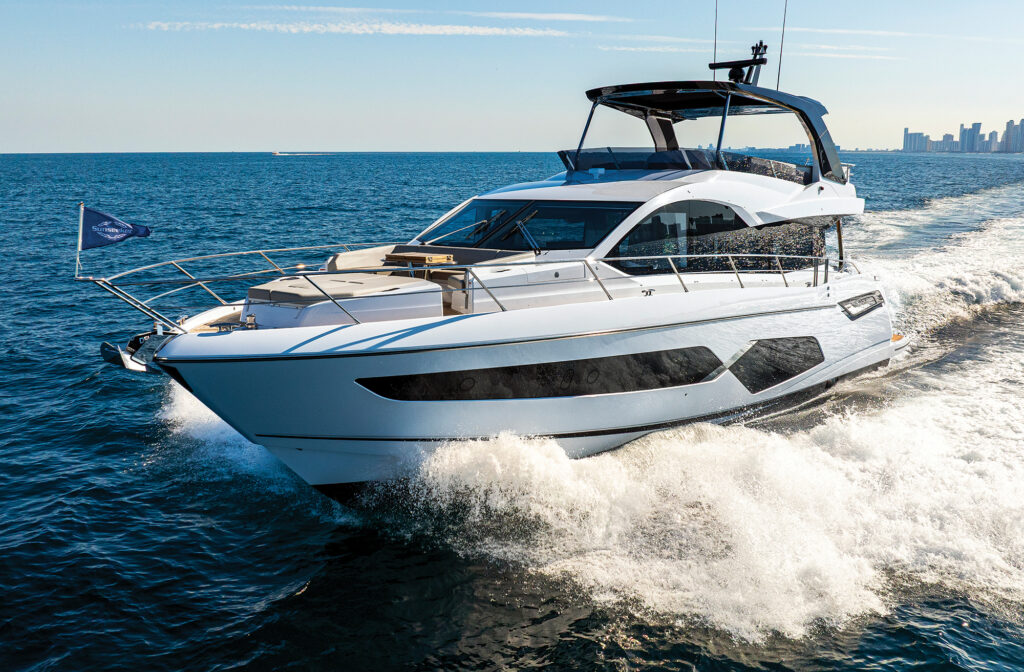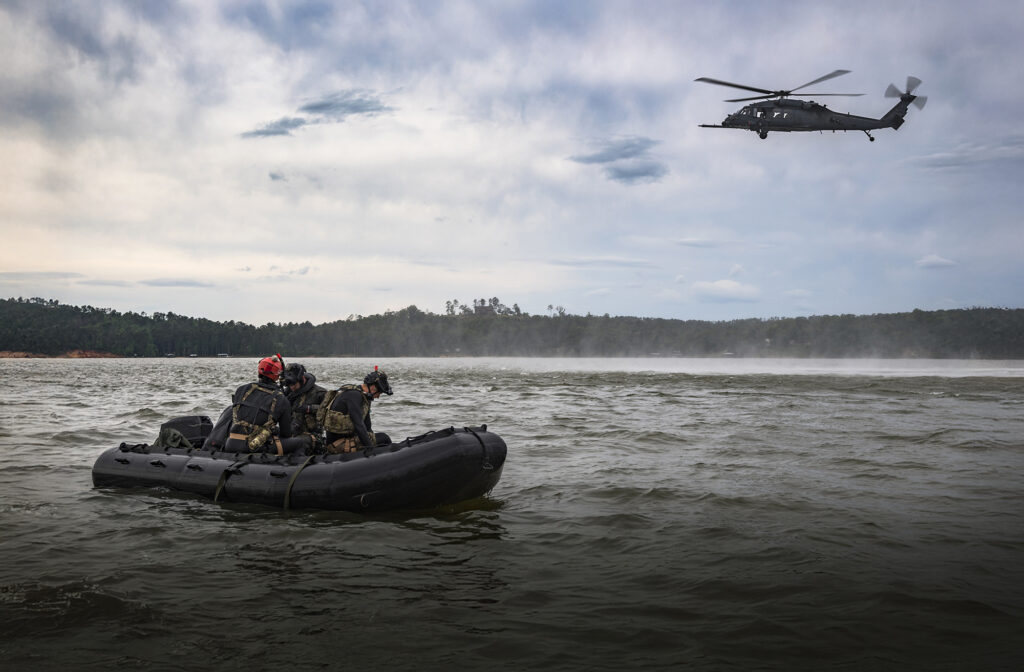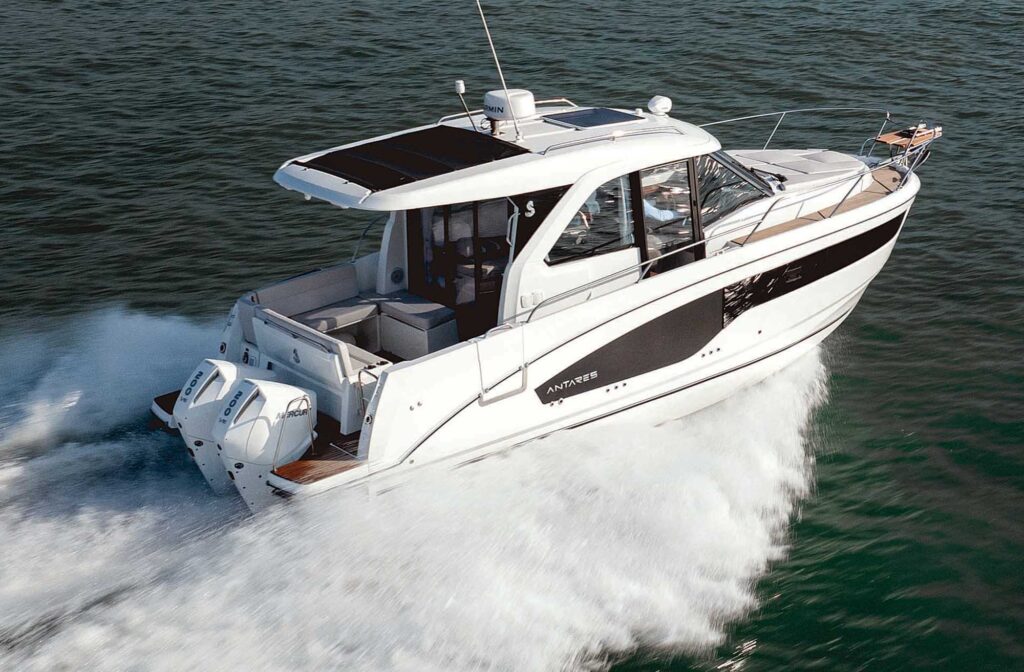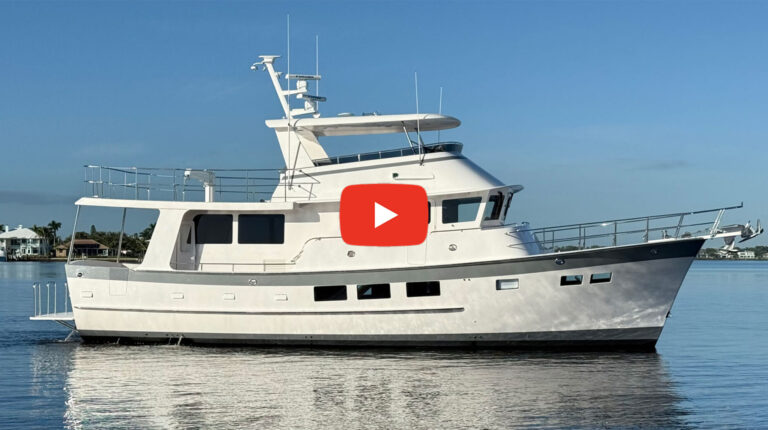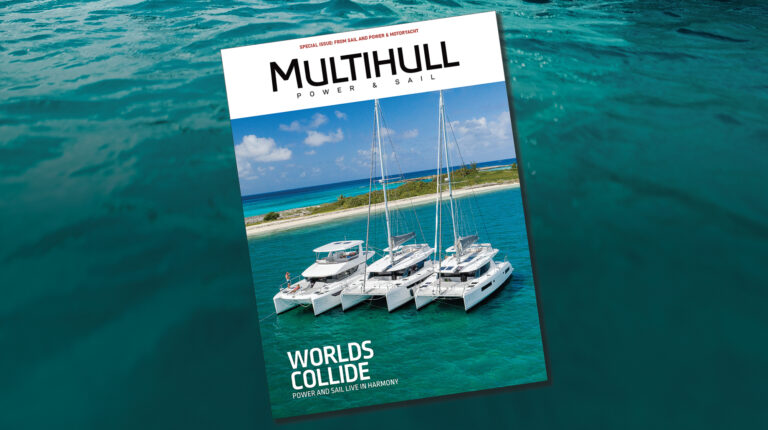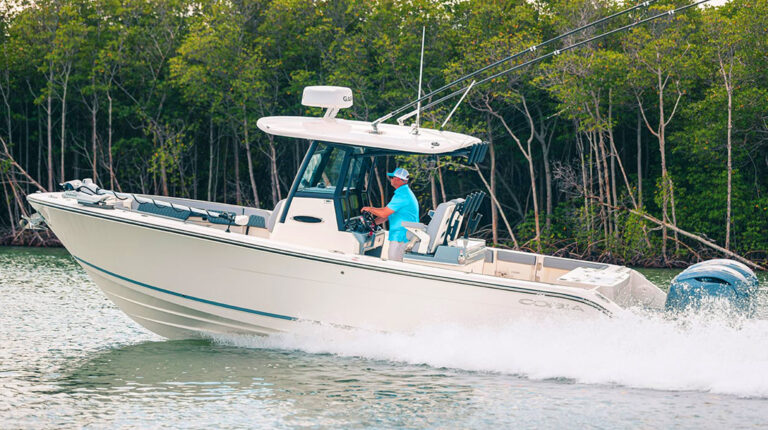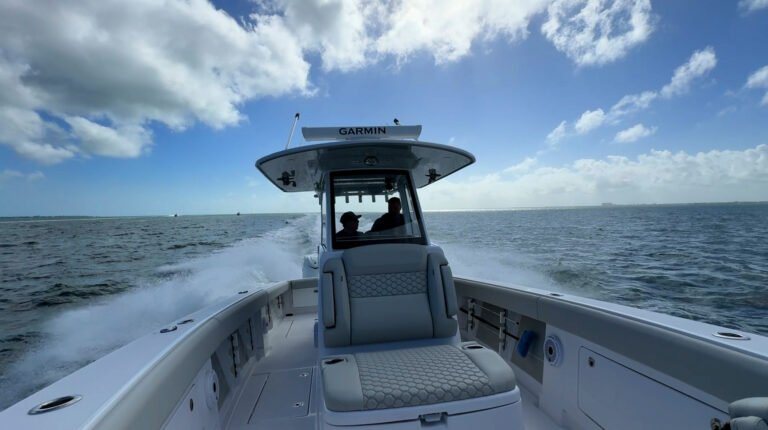The Swedish engine manufacturer is making serious waves with news of their shuttering of Seven Marine and their launching of an electric IPS system.
Volvo Hybrid Power

A new breed of crew vessels will utilize a mix of electric-powered IPS drives, gensets, a battery pack and diesel power. These innovative commercial vessels may unlock a new trend in marine propulsion.
When one of the world’s largest wind farm operators requested a hybrid-powered crew transfer vessel, they looked to Volvo Penta for propulsion options. The end result is a unique mix of electric Inboard Performance Systems (IPS drives), five variable-speed Volvo D8 gensets and two D13 diesel engines. A battery pack will complement the power to support peak-shaving and allow the vessel to operate in full electric mode at low speeds.
Building the 112-foot vessels became a fully collaborative, international effort—design firms in the U.K. and Australia drew up the plans while the Afai Southern Shipyard in China will lead construction. The vessels, set to launch in the summer of 2021, will feature eight cabins and carry up to 24 crew. They will run workers out to wind farms located 56 and 65 nautical miles off of England’s Yorkshire Coast. Efficiency was the paramount objective, and the engineers at Volvo worked with Danfoss Editron, which specializes in electric propulsion, to come up with the hybrid power plants.
“One of the best ways to advance our technology is to take on these bold projects and work collaboratively with other technology leaders,” says Peter Granqvist, Volvo Penta Chief Technology Officer. “This project is teaching us a lot about experimental technical solutions, and we are excited to see the outcomes and learn more.”

The vessels will use quad drives for propulsion: two electric and two diesel. The main source of power for the electric propulsion will come from five Volvo D8 gensets. These smaller gensets offer variable speeds combined with a selectable option to run one or all of the gensets to lower downtime and increase efficiency. Additionally, the gensets can be replaced by fuel cells or similar technology as it becomes available. Perhaps the most exciting part of the system are the electric IPS drives themselves, which will be powered by electric motors supplied by Danfoss Editron. Once proven in the waters of the North Sea, it wouldn’t be a surprise to see similar electric options filter down to recreational boats.
The crew vessels will be capable of operating fully electric or in a hybrid mode. When cruising to the wind farms all four Volvo Penta IPS can be used. When transiting the harbor at idle speeds or at the wind farm, the operator can make a switch and run the vessels with the battery pack powering the electrical Volvo Penta IPS legs or any combination of one to all five gensets, depending on weather conditions.
Volvo estimates the hybrid option will save about 127 metric tons of CO2 compared to traditional, diesel-powered vessels. —Charlie Levine
Seven Marine Outboards to Be Retired

In an announcement earlier in the week, the Volvo Group outlined a plan to hit science-based targets in order to become a net-zero emissions operation, citing a project to develop and commercialize fuel-cell systems—with commercial trucks as the initial focus.
To do its part, Volvo Penta says it is significantly accelerating its own sustainability projects to reach zero emissions via fossil-free, renewable fuels, electric and hybrid technology.
To meet these goals, they have announced that Seven Marine outboard production will be halted and phased out once current demand is met.

“We want to send a clear message,” said Volvo Penta president Heléne Mellquist in a statement,
“Volvo Penta does foresee that the outboard segment will continue to be relevant for the Marine Leisure market, but we believe that the indisputable need to drive advancements in sustainable technology must be our main focus. This is why, for the time being, the exploration of new technology together with the development of our core business, such as Volvo Penta IPS and sterndrives, will be the center of our efforts.”
Seven Marine’s current outboard customer base will still see support via full warranty and parts responsibility from Volvo Penta.
“In the future, the world will be powered by a combination of battery-electric and fuel-cell electric vehicles, along with other renewable fuels to some extent. The formation of our fuel-cell joint venture is an important step in shaping a world we want to live in,” said Martin Lundstedt, president and CEO of the Volvo Group. —Jeff Moser

